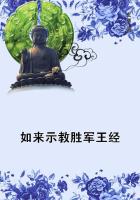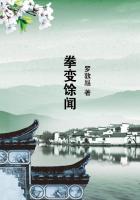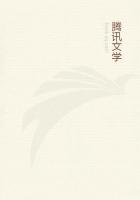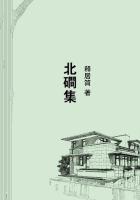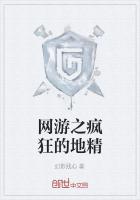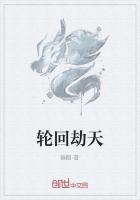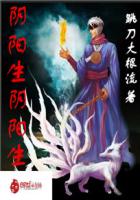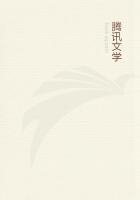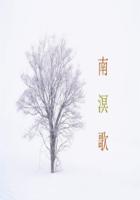According to Littre, there is nowhere so strong a statement of these views in the genuine works of Hippocrates, but they are found at large in the Hippocratic writings, and nothing can be clearer than the following statement from the work "The Nature of Man": "The body of man contains in itself blood and phlegm and yellow bile and black bile, which things are in the natural constitution of his body, and the cause of sickness and of health. He is healthy when they are in proper proportion between one another as regards mixture and force and quantity, and when they are well mingled together; he becomes sick when one of these is diminished or increased in amount, or is separated in the body from its proper mixture, and not properly mingled with all the others." No words could more clearly express the views of disease which, as I mentioned, prevailed until quite recent years. The black bile, melancholy, has given us a great word in the language, and that we have not yet escaped from the humoral pathology of Hippocrates is witnessed by the common expression of biliousness--"too much bile"-- or "he has a touch of the liver."
The humors, imperfectly mingled, prove irritant in the body.
They are kept in due proportion by the innate heat which, by a sort of internal coction gradually changes the humors to their proper proportion. Whatever may be the primary cause of the change in the humors manifesting itself in disease, the innate heat, or as Hippocrates terms it, the nature of the body itself, tends to restore conditions to the norm; and this change occurring suddenly, or abruptly, he calls the "crisis," which is accomplished on some special day of the disease, and is often accompanied by a critical discharge, or by a drop in the body temperature. The evil, or superabundant, humors were discharged and this view of a special materies morbi, to be got rid of by a natural processor a crisis, dominated pathology until quite recently. Hippocrates had a great belief in the power of nature, the vis medicatrix naturae, to restore the normal state. A keen observer and an active practitioner, his views of disease, thus hastily sketched, dominated the profession for twenty-five centuries; indeed, echoes of his theories are still heard in the schools, and his very words are daily on our lips. If asked what was the great contribution to medicine of Hippocrates and his school we could answer--the art of careful observation.
In the Hippocratic writings is summed up the experience of Greece to the Golden Age of Pericles. Out of philosophy, out of abstract speculation, had come a way of looking at nature for which the physicians were mainly responsible, and which has changed forever men's views on disease. Medicine broke its leading strings to religion and philosophy--a tottering, though lusty, child whose fortunes we are to follow in these lectures. I have a feeling that, could we know more of the medical history of the older races of which I spoke in the first lecture, we might find that this was not the first-born of Asklepios,that there had been many premature births, many still-born offspring, even live-births-- the products of the fertilization of nature by the human mind; but the record is dark, and the infant was cast out like Israel in the chapter of Isaiah. But the high-water mark of mental achievement had not been reached by the great generation in which Hippocrates had labored. Socrates had been dead sixteen years, and Plato was a man of forty-five, when far away in the north in the little town of Stagira, on the peninsula of Mount Athos in Macedoniawas, in 384 B.C., born a "man of men," the one above all others to whom the phrase of Milton may be applied. The child of an Asklepiad, Nicomachus, physician to the father of Philip, there must have been a rare conjunction of the planets at the birth of the great Stagirite. In the first circle of the "Inferno," Virgil leads Dante into a wonderful company, "star-seated" on the verdure (he says)--the philosophic family looking with reverence on "the Master of those who know"--il maestro di color che sanno.[28] And with justice has Aristotle been so regarded for these twenty-three centuries. No man has ever swayed such an intellectual empire--in logic, metaphysics, rhetoric, psychology, ethics, poetry, politics and natural history, in all a creator, and in all still a master. The history of the human mind--offers no parallel to his career. As the creator of the sciences of comparative anatomy, systematic zoology, embryology, teratology, botany and physiology, his writings have an eternal interest. They present an extraordinary accumulation of facts relating to the structure and functions of various parts of the body. It is an unceasing wonder how one man, even with a school of devoted students, could have done so much.
[28] The "Good collector of qualities," Dioscorides, Hippocrates, Avicenna, Galen and Averroes were the medical members of the group. Dante, Inferno, canto iv.
Dissection--already practiced by Alcmaeon, Democritus, Diogenes and others--was conducted on a large scale, but the human body was still taboo. Aristotle confesses that the "inward parts of man are known least of all," and he had never seen the human kidneys or uterus. In his physiology, I can refer to but one point--the pivotal question of the heart and blood vessels. To Aristotle the heart was the central organ controlling the circulation, the seat of vitality, the source of the blood, the place in which it received its final elaboration and impregnation with animal heat. The blood was contained in the heart and vessels as in a vase--hence the use of the term "vessel." "From the heart the blood-vessels extend throughout the body as in the anatomical diagrams which are represented on the walls, for the parts lie round these because they are formed out of them."[29]

